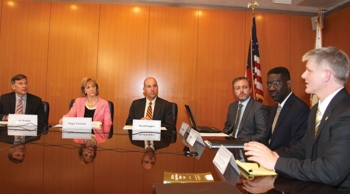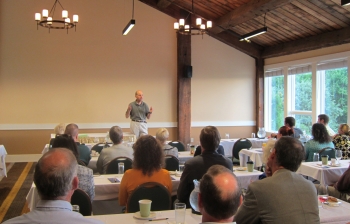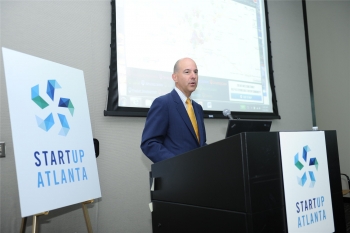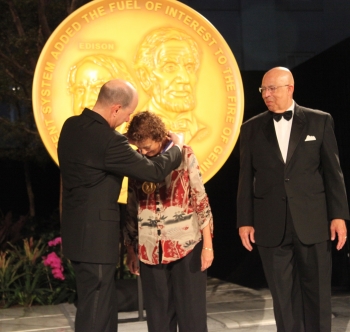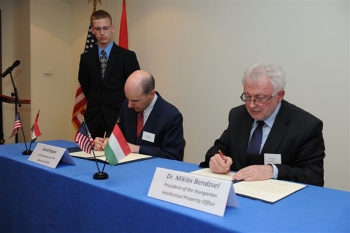Commerce Announces Partnership with Cornell NYC Tech to Help American Entrepreneurs Innovate, Grow, and Create Jobs
First-of-its-kind campus collaboration will provide USPTO and Commerce resources directly to students, faculty and industry, help accelerate commercialization of new technologies
Today Acting U.S. Commerce Secretary Rebecca Blank was joined by Under Secretary of Commerce for Intellectual Property and Director of the U.S. Patent and Trademark Office (USPTO) David Kappos and Cornell University President David J. Skorton to announce a groundbreaking agreement between the Commerce Department and Cornell University that will promote growth for American businesses and entrepreneurs. U.S. Senator Charles Schumer (D-NY), U.S. Representative Carolyn Maloney (D-NY), and New York City Deputy Mayor Robert Steel also participated in the event.
Acting Secretary Blank announced that for the first time, the resources of a U.S. government agency and a major research institution will join forces to give students and researchers at Cornell’s New York City Tech Campus (Cornell NYC Tech) direct access to resources that will help them bring their ideas to market and grow their businesses.
By installing a permanent staff member of the U.S. Commerce Department at Cornell’s NYC Tech campus, the department will be bringing its full suite of resources to the university community, helping connect students, faculty and mentors to early-stage investors, intellectual property strategies, export assistance tools, government grants, and academic partners. The partnership will help Cornell’s new academic institution break down the traditional boundaries that exist between graduate education and the research and development of technology products. Press release



